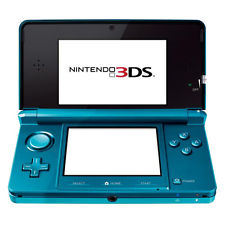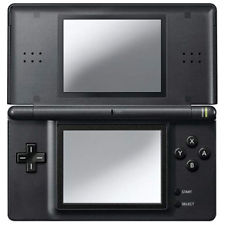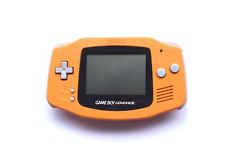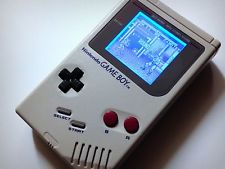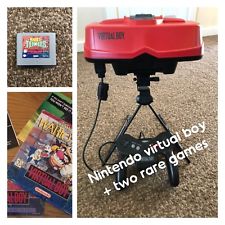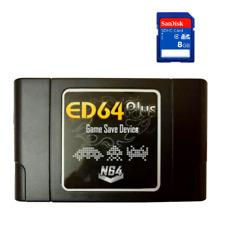|
April 21st, 2008, 19:32 Posted By: wraggster
Nintendo sits atop the home video-game market. Its Wii, though less technologically advanced than Microsoft’s Xbox 360 or Sony’s PlayStation 3, continues to outsell those machines and is now in more than 20 million homes.
The Wii’s reach extends far, including use for physical therapy.
So why are retailers having so much trouble selling Wii games?
Take Super Smash Bros. Brawl. It was one the most hotly anticipated video games of the year; it sold more than 1.4 million copies during the first week of its release, in early March, and broke records for Nintendo of America.
“We certainly have a built-in fan base for Smash,” said Denise Kaigler, Nintendo of America’s vice president for corporate affairs. “I’m hoping that we can continue to generate success and awareness of the game.”
But sales dropped more than 90 percent over the first four weeks, according to estimates from VG Chartz, a team of analysts who study video-game sales.
Some major retail chains — including Wal-Mart and Toys “R” Us — have already begun bundling the Smash Bros. game with Wii machines for sales online, a sign that the base of hard-core gamers who went looking for the game has been depleted.
Retailers confirm the sharp drop. “We sold a couple thousand copies in the first week,” said Xavier Pervez, assistant manager at a GameStop in Fairfield, Conn. “It’s dropped off significantly now, maybe 100 in each of the last couple weeks.”
Toys “R” Us has instructed its sales staff to warn customers that some Wiis cannot read the Smash Bros. disc, and to refuse to exchange the game if customers later claim it is defective. Some parents who receive that warning are just as happy to buy a different game instead. But Nintendo claims few Wiis are subject to the malfunction, and Toys “R” Us sales staff said few customers have been dissuaded from buying or keeping the game.
“The number we got back for return was pretty minimal,” a saleswoman, Christina Giori, said. “Maybe eight copies out of 500. It’s something Nintendo’s really trying to crack down on.”
A number of games that garnered critical acclaim in recent months, notably the cartoonish action-adventure game Zack & Wiki and the off-kilter action-adventure No More Heroes, have yielded disappointing sales.
Over the first three months of the year, only three other Wii titles broke the list of top 10 best-selling games compiled by the NPD Group, a market research firm: Super Mario Galaxy, Guitar Hero III and Wii Play, a sports game that comes with the purchase of a much-needed additional game controller. The Wii may not be behind the success of all those titles, though; Guitar Hero, for example, sold 2.2 million copies for the Wii, but 2.8 million copies for the Xbox 360 and almost 5 million for two versions of the PlayStation.
The problem is that, in marketing the Wii, Nintendo cast a wide net and caught more than the big fish. The Wii’s innovative motion-sensitive controller and a price lower than the rival machines appeal to a broader audience than the traditional market of young male hard-core gamers. Younger children, women and older consumers, who historically have not been sought by the video-game industry, have discovered video games through the Wii — just not that many of them.
These new gamers are content with the games they have, often going no further than the Wii Sports game that comes with the machine. They don’t buy new games with the fervor of a traditional gamer who is constantly seeking new stimulation.
The average Wii owner buys only 3.7 games a year, compared with 4.7 for Xbox 360 owners and 4.6 for PlayStation 3 owners, said a Wedbush Morgan analyst, Michael Pachter. “It reflects the broadening of the demographic,” he said. “Nintendo’s market doesn’t feel the same sense of urgency to buy every game that’s coming out.”
“You don’t see a lot of titles that reach 30 to 40 percent of the installed base,” said a Lazard Capital analyst, Colin Sebastian. “My in-laws in Texas have a Wii sitting on their living-room floor next to the TV, which to me is kind of amazing. They have Wii Sports, a Brain Age game, Wii Play. That’s about it.”
Part of the problem, analysts say, is that other game makers have yet to embrace unconventional advertising methods that can reach this broader audience. Nintendo did it by promoting its memory game Brain Age on the radio.
“Advertising on GameInformer and 1up.com just isn’t reaching this audience,” Mr. Pachter said. “When you make a game like Zack & Wiki or Boogie, which turns the hard core off and doesn’t reach the masses, then you’re in trouble.”
Still, not all third-party publishers have found the Wii market difficult to crack. Multiplatform games like Ubisoft’s Rayman: Raving Rabbids, a cartoon action-adventure, have found receptive audiences.
Hudson Soft has had success with titles including Sudoku, crossword puzzles, jigsaw puzzles and fishing games.
“The kind of person that buys a Wii is not the same kind of person that buys a PS3 or an Xbox,” said John Greiner, the chief executive of Hudson Entertainment, the North American arm of Hudson Soft. “You have to be very specific when you design a game and target not only the gameplay mechanics for that user, but also the marketing for that kind of a product launch.”
Hudson has also benefited from an especially close relationship with Nintendo. Hudson developed Mario Party 8, consistently one of the Wii’s top sellers, and has been one of the greatest beneficiaries of the Wii Virtual Console, which charges users to play classic video games.
Nintendo itself seems primarily focused on expanding this casual audience, while continuing to deliver sequels to its most beloved franchises including Mario Kart Wii, the latest incarnation of its popular driving simulator, which will be released next week.
Ms. Kaigler, the Nintendo spokeswoman, says the company hopes Mario Kart will serve as a “bridge title” between casual gamers and core fans, with the help of a steering wheel device into which a Wii controller can fit.
Wii Fit, an exercise game due next month, is expected to receive more marketing dollars than any game in Nintendo’s history, Mr. Pachter said — and the money will not be spent wooing young men. “Wii Fit is just not aimed at hard-core gamers,” Mr. Pachter said. “It’s definitely aimed at the Oprah crowd. I bet they sell a million units a week for every pound that Oprah says she lost on it.”
http://www.nytimes.com/2008/04/21/te...in&oref=slogin
For more information and downloads, click here!
 There are 8 comments - Join In and Discuss Here There are 8 comments - Join In and Discuss Here
|
|
 NES
NES





